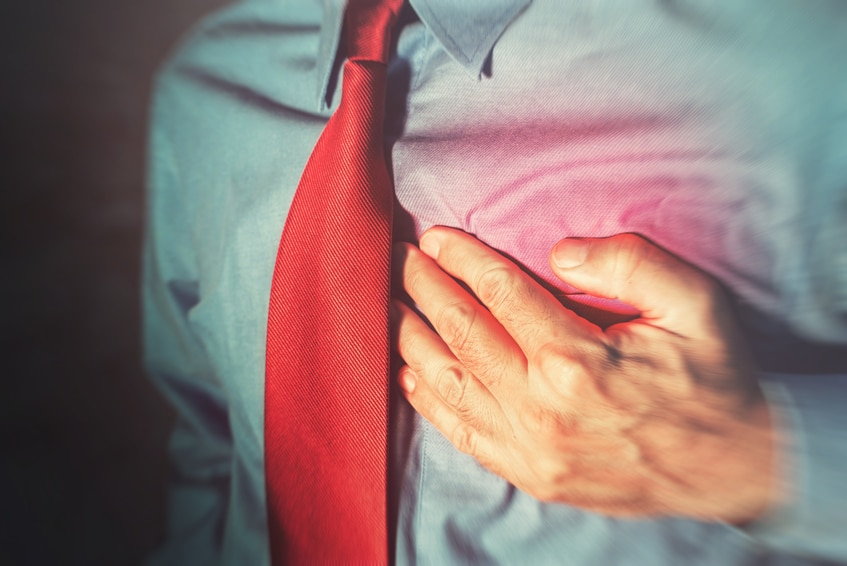More than 100,000 Americans die of a heart attack each year. But that number would be much lower if the vast majority of them didn’t ignore one simple rule…
Call 911.
A study in the journal Circulation found that only 23% of people in the hospital for chest pain called 911. The others either drove themselves or had someone else drive them. This delays potentially lifesaving medical treatment.1
Data collected from about 2,000 patients found that many chest pain sufferers are too embarrassed to call 911. They don’t want to cause a fuss in case they are suffering heartburn or something less serious than a heart attack. “What if it’s nothing?” they wonder.
Patients with a history of heart problems are far more likely to call 911. That’s because they understand the seriousness of the situation.
When you say “chest pains” to a 911 dispatcher, they send paramedics trained to perform an electrocardiogram (ECG). This can reveal problems with your heart’s electrical activity. It’s information that can save your life.2 Every second wasted could mean more heart tissue lost—and greater risk of death or disability.3
Recommended for You: $10 Device Lowers Blood Pressure 15 Points
It may be the strangest trick you’ve ever heard to lower blood pressure. But multiple studies prove it works. All you need is a cheap $10 tool (which you can find on Amazon or at Target) and a few minutes each day. Find out more HERE.
The Most Important Phone Call of Your Life
Dr. N. Clay Mann is an associate professor at the University of Utah School of Medicine. He says it is foolish not to call 911 when you are having chest pains.
“What people are missing is that the moment those paramedics arrive on their doorstep, treatment starts. Oxygen, medications, monitoring, and defibrillation are available immediately. And probably the most important point is (the paramedics) can call and warn the (emergency room) that they’re bringing in a person with chest symptoms, so care on arrival is much quicker.”
Paramedics transmit a six-second ECG recording to the emergency room doctors prior to a patient’s arrival. This allows doctors to skip diagnostics and start treatment as soon as the patient arrives. This doesn’t happen if you drive yourself to the hospital. And it can mean the difference between life and death.
The ECG information will reveal if the patient is having a major heart attack or has a heart condition that requires immediate surgery.
Some 750,000 Americans suffer a heart attack each year. About 15% of them die. Numerous studies show your chances of surviving a heart attack increase the sooner emergency medical treatment is available.4
Beyond Chest Pain: 6 Heart Attack Symptoms You Need to Recognize
Heart attack symptoms often include more than chest pain or pressure. You may also experience:
- Pain that spreads to the shoulders, neck, or arms
- Irregular or rapid heartbeat
- Cold sweat or clammy skin
- Lightheadedness, weakness, or dizziness
- Shortness of breath
- Nausea, indigestion, or vomiting
If you’re worried about your heart health, there’s something else you should know…
Some brave doctors are finally telling the truth about America’s number one killer…and what really treats heart disease. Like the natural supplement a Mayo Clinic professor prescribes to all his heart patients.
Discover all the details HERE.
In Good Health,

Angela Salerno
Executive Director, INH Health Watch
Like this Article? Forward this article here or Share on Facebook.
References:
1http://www.webmd.com/heart-disease/news/20000710/heart-attack-no-911-call#1
2http://www.health.harvard.edu/press_releases/what-to-expect-after-calling-911-for-chest-pain-from-the-june-2016-harvard-heart-letter
3http://www.heart.org/HEARTORG/General/Heart-Attack-or-Stroke-Call-911-First-And-Fast_UCM_435652_Article.jsp#.WCtDJNUrJhE
4http://www.cdc.gov/dhdsp/data_statistics/fact_sheets/fs_heartattack.htm

